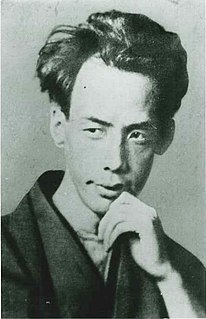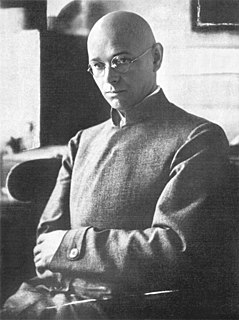A Quote by Austin O'Malley
Life is a charity ball given by the leaders of society. A few dance, get their charity's worth to the last penny; and the poor stand outside the gate and watch with hungry eyes the glint of jewels in the warm air. Then comes the lackey Death, and he says: "Madam and my Master, your carriage waits." So they go away into the dark in the carriage of the black plumes, and the dancing continues.
Related Quotes
When we want to help the poor, we usually offer them charity. Most often we use charity to avoid recognizing the problem and finding the solution for it. Charity becomes a way to shrug off our responsibility. But charity is no solution to poverty. Charity only perpetuates poverty by taking the initiative away from the poor. Charity allows us to go ahead with our own lives without worrying about the lives of the poor. Charity appeases our consciences.
Chained inside the carriage is a sinful woman. When we set the carriage afire, her flesh will be roasted, her bones will be charred: she will die an agonizing death. Never again will you have such a perfect model for the screen. Do not fail to watch as her snow-white flesh erupts in flames. See and remember her long black hair dancing in a whirl of sparks!
I told my students the other day in class, which is about the spirituality and creativity as much as it is about music. I said, 'If you're walking down the street and you see a baby carriage, and there's a baby in the carriage; you look down and your eyes meet the eyes of the baby. The baby looks at you: That's the kind of moment you're in when you're playing.
You know these things as thoughts, but your thoughts are not your experiences, they are an echo and after-effect of your experiences: as when your room trembles whe na carriage goes past. I however am sitting in the carriage, and often I am the carriage itself. Ina man who thinks like this, the dichotomy between thinking and feeling, intellect and passion, has really disappeared. He feels his thoughts. He can fall in love with an idea. An idea can make him ill.
We often equate charity with visiting the sick, taking in casseroles to those in need, or sharing our excess with those who are less fortunate. But really, true charity is much, much more. Real charity is not something you give away; it is something that you acquire and make a part of yourself. And when the virtue of charity becomes implanted in your heart, you are never the same again.
Charity is today a 'political charity.'. . . it means the transformation of a society structured to benefit a few who appropriate to themselves the value of the work of others. This transformation ought to be directed toward a radical change in the foundation of society, that is, the private ownership of the means of production.
It's easy to run to others. It's so hard to stand on one's own record. You can fake virtue for an audience. You can't fake it in your own eyes. Your ego is your strictest judge. They run from it. They spend their lives running. It's easier to donate a few thousand to charity and think oneself noble than to base self-respect on personal standards of personal achievement. It's simple to seek substitutes for competence--such easy substitutes: love, charm, kindness, charity. But there is no substitute for competence.
Your generosity is reflected in what you do with your own money, not in what you do with other people's money. If I give a lot of money to charity, then I am generous. If you give a smaller fraction of your money to charity, then you are less generous. But if you want to tax me in order to give my money to charity, that does not make you generous.




































